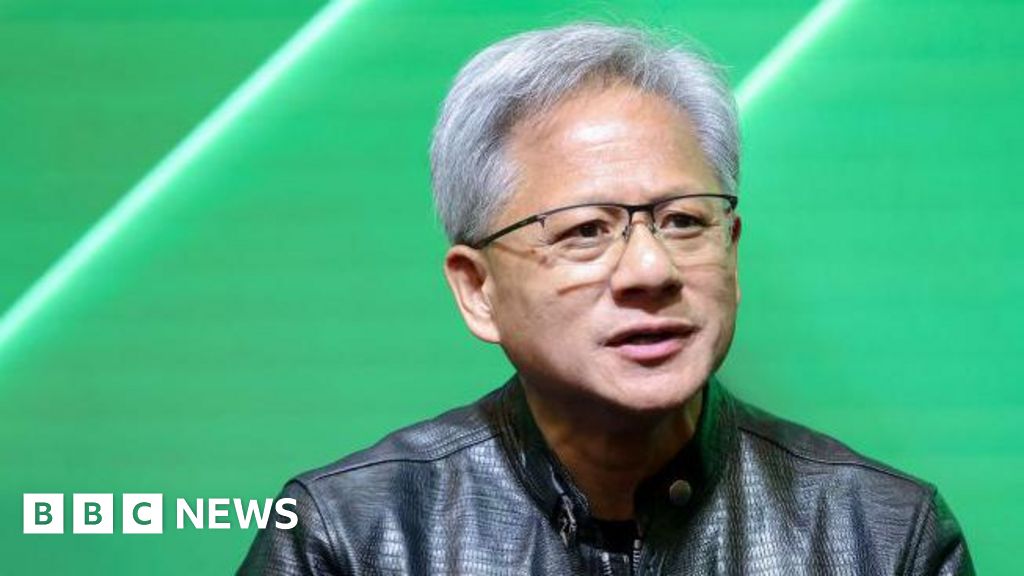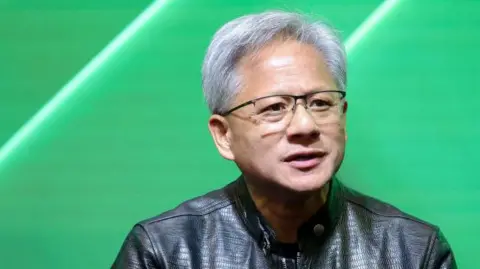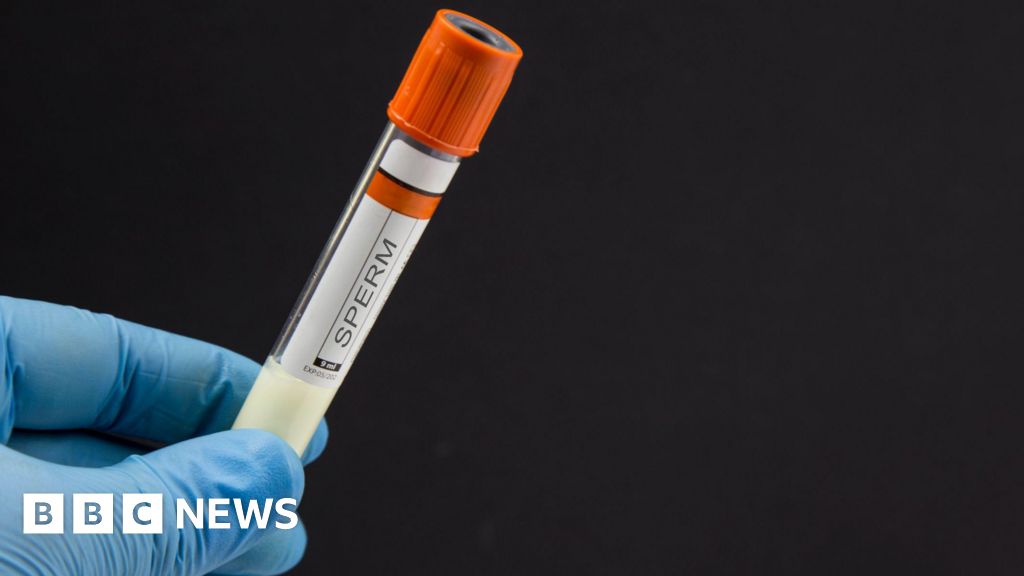
By Zoe Kleinman, Technology editor
 Getty Images
Getty ImagesLife comes at you fast.
Last month, AI chip giant Nvidia briefly became the world’s richest company, overtaking Microsoft, which had in turn risen above Apple.
When this news was mentioned on stage at a tech industry event I attended in Copenhagen, there was spontaneous applause from the audience.
As I write, Nvidia is now back in second place, after a fall in its share price took its combined value down to $3tn (£2.4tn) compared with $3.4tn for Microsoft.
Two things have propelled these two US tech titans to such a dizzying pinnacle: AI and foresight.
Microsoft started investing in OpenAI, the creator of popular AI chatbot ChatGPT, back in 2019. Meanwhile, Nvidia boss Jensen Huang pushed his company towards AI chip development many years before generative AI exploded onto the scene.
Both firms took a long-term bet on the current AI boom – and so far, it’s paid off, leaving former top-dog Apple trailing in their wake. But how long will it last?
This year’s London Tech Week, an annual event for the UK tech scene, may as well have been called London AI Week. The letters AI were emblazoned on every stand, and uttered in every speech.
I bumped into Anne Boden, the founder of Starling Bank, a significant fintech disruptor. She was buzzing with excitement.
“We thought we knew who the winners and losers were [in tech],” she told me. “But with AI, we are throwing the dice again”.
She believes she’s watching the AI revolution re-landscape the tech sector, and she wants to dive back in.
That same week I also popped along to Founders Forum, an annual gathering of around 250 high-level entrepreneurs and investors. Some serious money, in other words. It’s a confidential event, but I don’t think I’ll get into too much trouble for saying that much of the chat there was also centred around AI.
A few days after that, a headline in the Financial Times caught my eye. “Most stocks hyped as winners from AI boom have fallen this year,” it read, claiming that more than half of the stocks in Citigroup’s “AI winners basket” had fallen in value in 2024.
Life comes at you fast indeed.
 Getty Images
Getty Images“Given how high valuations have leapt for tech companies, missteps ahead could cause big wobbles in share prices,” warns Susannah Streeter, head of money and markets at the investment firm Hargreaves Lansdown.
“Just like the dot.com bubble, over-enthusiasm risks spilling over into disappointment.”
In 2023 you’d have been forgiven for thinking that anything with the acronym AI in it was guaranteed to open up a lucrative seam of funding, with investment dollars flooding into all things AI.
My friend Saurabh Dayal, who is based in Scotland, identifies AI projects for his investment firm to potentially collaborate on.
He said he soon grew tired of misleading pitches.
“I spend a lot of time saying ‘… but that’s not AI’,” he tells me.
It seems both investors and clients are finally growing wiser to the term AI, and, as a result, more picky.
Speaking to the FT, Citi’s Stuart Kaiser said that while AI remained a big theme in the world of stocks and shares, “just saying AI 15 times isn’t going to cut it anymore”.
In addition, there is increased awareness of current generative AI products not exactly living up to their own hype. Inaccuracies, misinformation, displays of bias, copyright infringements and some content that’s just plain weird.
And early AI-enabled physical devices like the Rabbit R1 and Humane Pin have received bad reviews.
“We’re seeing the market around generative AI mature a little right now – early experiments set a lot of grand expectations, but when the rubber hit the road there were too many unexpected outcomes,” says Chris Weston, chief digital and information officer of the tech service firm Jumar.
“Businesses have a lot of value tied up in goodwill – the trust and comfort that their clients have in their services. Introducing ungovernable chatbots is a step too far for many right now.”
Tech analyst Paolo Pescatore agrees that the pressure is on for AI firms to deliver on their promises. “The bubble will burst the moment one of the giants fails to show any meaningful growth from AI,” he says.
But he does not believe that is going to happen any time soon.
“Everyone is still jostling for position, and all companies are pinning their strategies on AI,” he adds.
“All the players are ramping up their activities, increasing spend and claiming early successes.”
 Getty Images
Getty ImagesThere’s another reason why the AI bubble might pop. It’s got nothing to do with the quality of the products or their market value. It’s whether the planet itself can afford it.
A study published last year predicted that the AI industry could consume the same amount of energy of a country the size of the Netherlands by 2027 if growth continues at its current rate.
I interviewed Prof Kate Crawford from the University of Southern California for the BBC’s Tech Life podcast, and she told me that worrying about the amount of electricity, energy and water required to power AI kept her awake at night.
Dr Sasha Luccioni from the machine-learning firm Hugging Face is also concerned.
“There’s simply not enough renewable energy to power AI right now – most of that bubble is fuelled by oil and gas,” she says.
The hope is that the tech could be used to identify sustainability solutions, like for example the secret of nuclear fusion, the way in which the sun gets its energy. But that hasn’t happened yet, and in the meantime, “AI systems put a huge strain on energy grids that are already under immense strain,” adds Dr Luccioni.
With so much uncertainty, few should bet against another shake-up among the world’s richest firms. But currently, Apple has a fight on its hands to catch up with Microsoft and Nvidia in the AI race.



